Recent Blog Posts
Cash Bond Vs. Surety Bond in Texas
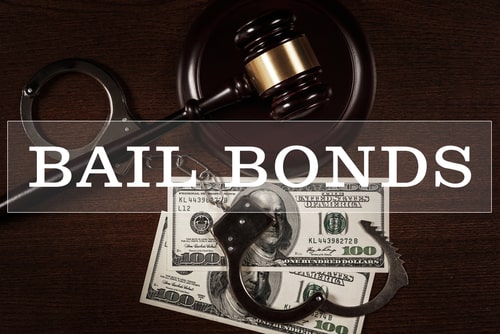 Nobody wants to get arrested, but the Prison Policy Initiative estimates that almost two million people are in prison or jail, and that 25 percent of people who get arrested will be arrested again within a year. So getting arrested isn’t all that unusual, and nobody wants to sit in jail if you don’t have to. But how do you get out of jail in Texas? What are your options for bail in 2026?
Nobody wants to get arrested, but the Prison Policy Initiative estimates that almost two million people are in prison or jail, and that 25 percent of people who get arrested will be arrested again within a year. So getting arrested isn’t all that unusual, and nobody wants to sit in jail if you don’t have to. But how do you get out of jail in Texas? What are your options for bail in 2026?
Two common options are cash bonds and surety bonds. Each has advantages, and knowing the differences can help you make a smart decision. The Dallas bail bonds team with Doc's Bail Bonds can help you decide whether one of these options is in your interest.
What is a Cash Bond?
Texas Code of Criminal Procedure Title 1 Chapter 17 is the law about bail in Texas. A cash bond, as the name suggests, involves paying the full bail amount in cash directly to the court. Here are key points to understand about cash bonds in Texas:
What Happens if the Defendant Is Rearrested While on Bond?
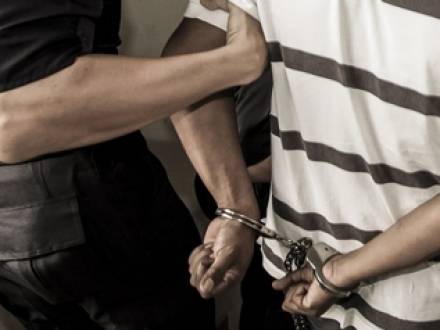 The bond process can feel like catching your breath again. It’s a chance to be home with your family, keep your job, and work on your case from outside jail. But if you're rearrested while on bond, that sense of relief can disappear quickly. This situation happens more than you might think, and it can feel overwhelming. A McKinney, TX bail bondsman can help you understand what comes next and guide you through the steps ahead.
The bond process can feel like catching your breath again. It’s a chance to be home with your family, keep your job, and work on your case from outside jail. But if you're rearrested while on bond, that sense of relief can disappear quickly. This situation happens more than you might think, and it can feel overwhelming. A McKinney, TX bail bondsman can help you understand what comes next and guide you through the steps ahead.
Why Does a Rearrest While on Bond Raise Red Flags for the Court?
Courts use bond to balance your freedom with public safety. When you're rearrested, it naturally raises concerns. Are you following the rules? Will you show up for your hearings?
Texas law gives judges the power to reconsider bond when circumstances change. Under Texas Code of Criminal Procedure Article 17.09, a court can increase or revoke your bond if good cause exists. A rearrest often qualifies as good cause, especially if there's a new offense involved.
Why Small Texas Counties Revoke Bond for Simple Violations
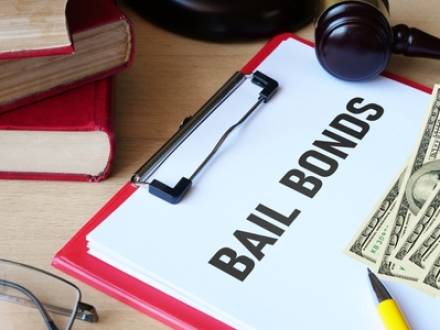 Life in rural Texas is different than life in Houston, Dallas, or San Antonio, and so is the court system. In many rural Texas counties, there may be less flexibility regarding the enforcement of bond conditions than in courts in larger cities. This means that a defendant can be re-arrested and forced to surrender his or her bond for a purely technical violation that would only receive a warning or modification elsewhere.
Life in rural Texas is different than life in Houston, Dallas, or San Antonio, and so is the court system. In many rural Texas counties, there may be less flexibility regarding the enforcement of bond conditions than in courts in larger cities. This means that a defendant can be re-arrested and forced to surrender his or her bond for a purely technical violation that would only receive a warning or modification elsewhere.
Such things as a missed check-in, a late address update, a dropped GPS signal, or other types of minor missteps can trigger immediate bond surrender and a warrant for arrest. If you are out on bond in a rural Texas area, understanding why rural counties take such a firm stance can help you avoid being re-arrested and forfeiting your bond.
When you choose a Denton County, TX bail bondsman from Doc's Bail Bonds, you are ahead of the game because you have chosen a company with an excellent reputation across North Texas. We are committed to working with you to help ensure your success.
Top Misconceptions About Bail Bonds in Texas
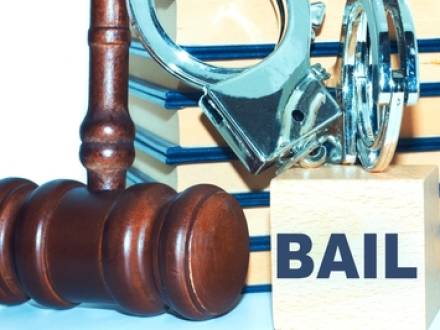 With more than 1.4 million arrests each year, you can imagine how many defendants must navigate the Texas bail bond system each day. The bail bond system is confusing enough without the misinformation that commonly circulates online, in jail holding areas, and even among well-meaning friends and family members. These myths can lead defendants to make costly mistakes.
With more than 1.4 million arrests each year, you can imagine how many defendants must navigate the Texas bail bond system each day. The bail bond system is confusing enough without the misinformation that commonly circulates online, in jail holding areas, and even among well-meaning friends and family members. These myths can lead defendants to make costly mistakes.
If you have been arrested in Texas, understanding the truth behind the most common bail bond misconceptions is the best way to ensure your rights are protected while avoiding additional legal trouble. When you choose a Dallas, TX bail bondsman from Doc's Bail Bonds, you have chosen a company with an exemplary reputation in North Texas that will work with you to help ensure your success.
How Do Bail Bonds Work in Texas?
The purpose of a bail bond is to ensure a defendant’s appearance in court. The judge may ask for cash bail, surety bonds, or personal bonds. Cash bail requires the defendant or a third party to pay the full bail amount in cash to the court. A surety bond involves a bond company.
Can You Lose Your Bond If You Miss Court for a Valid Reason?
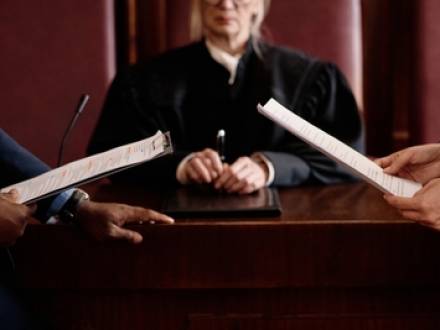 A 2015 study found that a staggering 40 percent of individuals charged with low-level offenses, such as trespassing or disorderly conduct, missed their court dates. New Mexico had the highest failure-to-appear rates, with warrants for failure to appear accounting for 61 percent of all warrants issued. However, among those who were required to post bond, that number was much smaller – somewhere between 8 and 20 percent.
A 2015 study found that a staggering 40 percent of individuals charged with low-level offenses, such as trespassing or disorderly conduct, missed their court dates. New Mexico had the highest failure-to-appear rates, with warrants for failure to appear accounting for 61 percent of all warrants issued. However, among those who were required to post bond, that number was much smaller – somewhere between 8 and 20 percent.
The study also found that most people who missed a court appearance did so unintentionally. They either simply forgot or had a legitimate issue that prevented them from appearing. A 2023 annual report from the Bail Project found that among those who posted bond and had a pretrial support system in place, the court appearance rate was approximately 92 percent.
What GPS Tracking Means for Texas Bail Clients
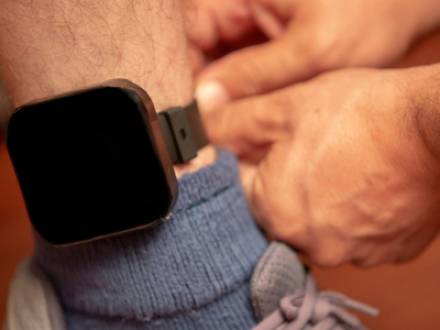 Posting bail in the state of Texas does not necessarily mean that you are entirely "free." Judges across the state are increasingly adding GPS and electronic monitoring as conditions of release. This is especially true in violent offenses, repeat DWI charges, or domestic violence cases. A GPS electronic monitoring device tracks a defendant’s movements 24/7, ensuring that curfews are adhered to and triggering alerts for "restricted" zones.
Posting bail in the state of Texas does not necessarily mean that you are entirely "free." Judges across the state are increasingly adding GPS and electronic monitoring as conditions of release. This is especially true in violent offenses, repeat DWI charges, or domestic violence cases. A GPS electronic monitoring device tracks a defendant’s movements 24/7, ensuring that curfews are adhered to and triggering alerts for "restricted" zones.
It is important to understand how electronic monitoring works and who pays for it to ensure you remain compliant while avoiding revocation of your bond. A Collin County, TX bail bondsman from Doc's Bail Bonds can answer all your questions while helping you navigate the bail bond system. As one of the largest and oldest bail bond companies in North Texas, we work hard to ensure your success.
Why GPS Monitoring is Becoming More Common in Texas
The Texas Code of Criminal Procedure, Article 17.43, allows electronic monitoring as a condition of bail, but the Damon Allen Act (Senate Bill 6) expanded judicial discretion over pretrial conditions. Public safety concerns have essentially driven the expansion of the use of GPS electronic monitoring, particularly for domestic violence, DWI, and stalking charges. Some of the largest Texas counties that have adopted pretrial services programs with electronic tracking and other similar services include:
AI Bail Decisions in Texas: What Defendants Should Know
 Although algorithms have been used in human form for a long time when making bail decisions, many Texas counties are now using an AI-driven risk assessment tool to predict the likelihood of a defendant skipping out on bail or reoffending. While supporters of AI bail algorithms argue that these tools make bail decisions more consistent, with less human bias involved, critics contend that the AI algorithm itself can come with embedded economic or racial bias.
Although algorithms have been used in human form for a long time when making bail decisions, many Texas counties are now using an AI-driven risk assessment tool to predict the likelihood of a defendant skipping out on bail or reoffending. While supporters of AI bail algorithms argue that these tools make bail decisions more consistent, with less human bias involved, critics contend that the AI algorithm itself can come with embedded economic or racial bias.
Following SB6 in 2021, Texas continues to modernize its bail system. However, if you are facing a bail judgment by an AI algorithm, it is essential to understand how these tools work, along with their legal limitations. A Dallas, TX bail bondsman from Doc's Bail Bonds is ready to help you navigate the bail bond system. Our bail bond company is one of the largest and oldest in North Texas. We work hard for our clients and will always go the extra mile for them.
Can Mental Health Treatment Be a Condition for Texas Bail?
 Most of us consider Texas bail nothing more than a financial transaction. A percentage of the bail amount is paid to a bail bond company, which then posts the entire bail amount with the court. These financial transactions essentially guarantee that the defendant will appear at any court hearings, even though he or she does not have to remain in jail. However, in some cases, money is not the only condition.
Most of us consider Texas bail nothing more than a financial transaction. A percentage of the bail amount is paid to a bail bond company, which then posts the entire bail amount with the court. These financial transactions essentially guarantee that the defendant will appear at any court hearings, even though he or she does not have to remain in jail. However, in some cases, money is not the only condition.
With the increase in defendants with mental health issues, judges are turning to mental health treatment requirements as a part of the bail conditions. In particular, defendants who struggle with serious mental disorders like PTSD, severe depression, bipolar disorder, or schizophrenia will likely have mental health requirements as a condition of bail. This raises the question as to whether Texas courts can actually order medication or counseling as a bail condition and what happens if a defendant is unable to comply.
If you have questions regarding these types of bail conditions, you can speak to a McKinney, TX bail bondsman from Doc's Bail Bonds. Our bail bond company is one of the oldest and largest bail bond companies in North Texas. We are fully committed to every client and will always go the extra mile to meet their needs.
Why Texas Says No to Property Bonds (Most of the Time)
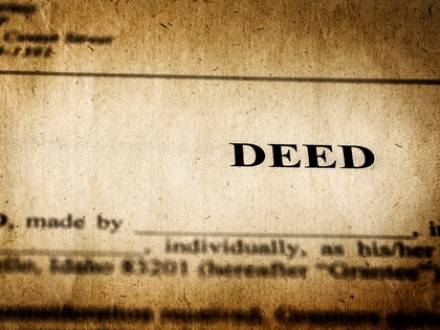 If a loved one has recently been arrested in the state of Texas and bail has been set, you are likely scrambling to ensure he or she spends the least amount of time possible in jail. This means finding a way to post the bail. Since few people can afford to post the entire cash bail amount, most will use a Texas bail bondsman (a surety bond). In many states, property bonds are also allowed.
If a loved one has recently been arrested in the state of Texas and bail has been set, you are likely scrambling to ensure he or she spends the least amount of time possible in jail. This means finding a way to post the bail. Since few people can afford to post the entire cash bail amount, most will use a Texas bail bondsman (a surety bond). In many states, property bonds are also allowed.
This means that real estate or other assets can be used as collateral in place of cash. In Texas, the option for a property bond, although legal, is rarely a consideration. If you are wondering why property bonds are not common in the state, the answer lies in Texas law, local court practices, and the state’s concerns regarding enforcement in the Texas bail system.
If you are considering putting up a property bond, it is imperative that you have a thorough understanding of how property bonds work and the reasons why it might not be a good idea, even if you can do it. Working with a Denton County, TX bail bondsman from Doc's Bail Bonds will ensure your questions are answered in a clear, understandable manner. We are one of the oldest and largest bail bond companies in North Texas, and we are committed to our clients and their needs.
When a Defendant Flees and a Bail Cosigner Files for Bankruptcy
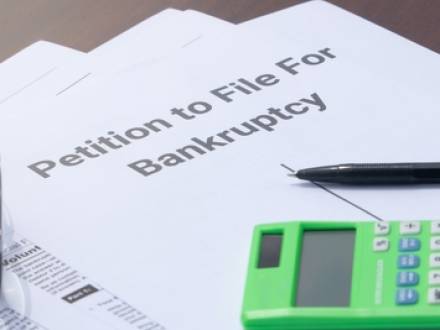 Suppose your spouse has been arrested, and the court has set a bond for him or her. You are willing to take financial responsibility to get your spouse out of jail, so you cosign the bond and put up a percentage of the bail amount (typically 10 percent). In most cases, arrangements like this work out well; however, what if your spouse fails to appear in court as required and flees the jurisdiction?
Suppose your spouse has been arrested, and the court has set a bond for him or her. You are willing to take financial responsibility to get your spouse out of jail, so you cosign the bond and put up a percentage of the bail amount (typically 10 percent). In most cases, arrangements like this work out well; however, what if your spouse fails to appear in court as required and flees the jurisdiction?
Typically, you, as the cosigner, would be responsible for the entire bail amount. This could potentially amount to hundreds of thousands of dollars. Can you file for bankruptcy to avoid paying the full bail amount? There is no doubt about it; this is a complicated situation. Questions regarding bond forfeiture, the liability of cosigners, and whether bankruptcy shields a cosigner from the consequences are all at issue.
Anyone considering cosigning a bond should have a thorough understanding of the intersection between Texas bail law and bankruptcy law. Working with an experienced McKinney, TX bail bondsman from Doc's Bail Bonds will ensure that all your questions are fully answered. We are one of the largest and oldest bail bond companies in North Texas and will work hard to help you find other solutions than bankruptcy.










